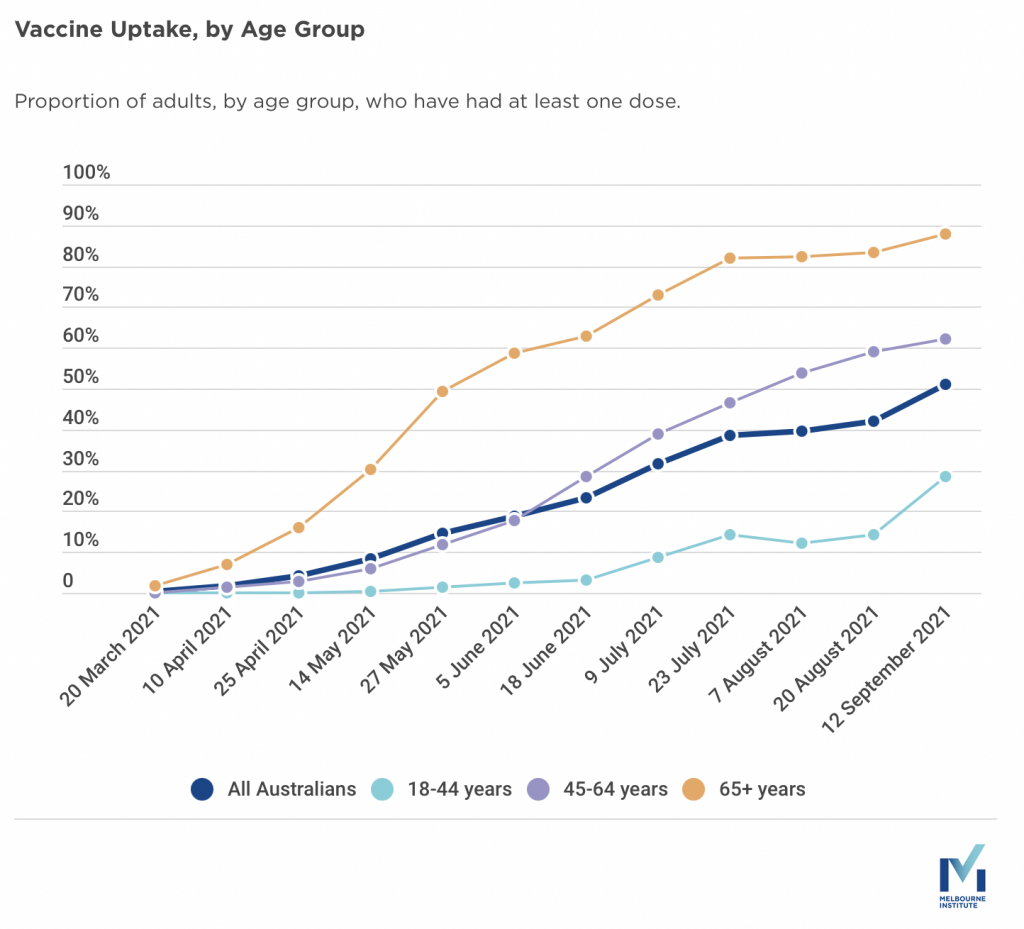Although nearly 15 million people have received at least one dose of the COVID-19 vaccine and almost 25 million doses have been given in the country, 16% of Australians are still hesitant about getting the shots and say they are not sure yet, or don’t want the vaccine, according to the Melbourne Institute’s Vaccine Hesitancy Tracker.
Despite overwhelming data from the Australian Technical Advisory Group on Immunisation (ATAGI) supporting the safety, efficacy and effectiveness of the currently authorised COVID-19 vaccines many have delayed vaccination, citing a range of reasons.
But some who were hesitant changed their minds.
Maria Geromanolis, a 61-year-old Melbourne grandmother-to-be and small business owner, was sceptical about the vaccine, but she said she decided to do it to protect her family and the community.
“I was holding back because my understanding is that there are no sufficient studies on the long-term effects of the vaccines,” she told The Greek Herald explaining that her initial plan was to get vaccinated but later on.
Her three daughters, Argiro (Aggie), Kalliope and Joanna, insisted on their mother getting vaccinated to protect not only their family but also the wider community.
“The girls told me that vaccines only work if everyone gets them. So, I decided to do the vaccine for three main reasons,” Ms Geromanolis said.
“First of all to protect my family, secondly because health is a public good and my decision to not be vaccinated should not be the reason for someone else to fall seriously ill and thirdly because I want my freedoms restored.
“My second daughter who is pregnant with her first child and fully vaccinated told me that I would not be able to see her and my first grandchild if I don’t get the vaccine. If there is a one-in-a-million chance for my daughter to contract the virus from me that would be devastating.”

Maria Geromanolis is now fully vaxxed and said that her GP’s advice also played an instrumental role towards her decision.
“He explained that the virus can damage the lungs, heart and brain, which increases the risk of long-term health problems,” she said.
According to the latest safety report from the Australian Therapeutic Goods Administration (TGA), vaccination against COVID-19 is the most effective way to reduce deaths and severe illness from infection.
Geromanolis also stressed the importance of traditional multicultural media outlets as the main source of information for people from culturally and linguistically diverse backgrounds.
“I am not on social media so my main source of information is newspapers such as The Greek Herald,” she said, explaining that the active involvement of cultural organisations also helps tackle vaccine hesitancy and barriers to COVID-19 vaccination.
“The four-day pop up vaccination clinic at the Greek Orthodox Church of St George in Thornbury was a great initiative from the Greek Community of Melbourne (GCM) and we need more of them.”
Aggie, Maria’s daughter and a Program Officer for non-for-profit organisation North Western Melbourne Public Health Network (NWMPHN) said accessible resources for families like her own are necessary.
“We need correct in language information. Then people can judge and make a decision,” said Aggie.
Melbourne grandmother-to-be Maria Geromanolis said it makes sense that some people have questions about COVID-19 vaccines. But relying on accurate information and trusted sources can help people make informed decisions and help end the pandemic, “so we can get closer to our normal lives and activities,” she said.
“I have faith in science and I believe this is for everyone’s good. We need to do our part and get vaccinated.”
READ MORE: Ask the expert: Dr Dimitrios Kollios answers your COVID-19 vaccine questions

